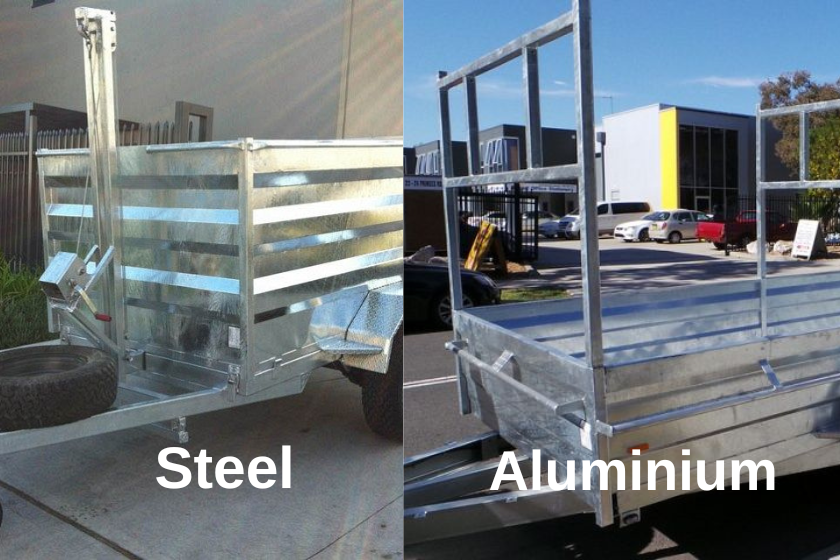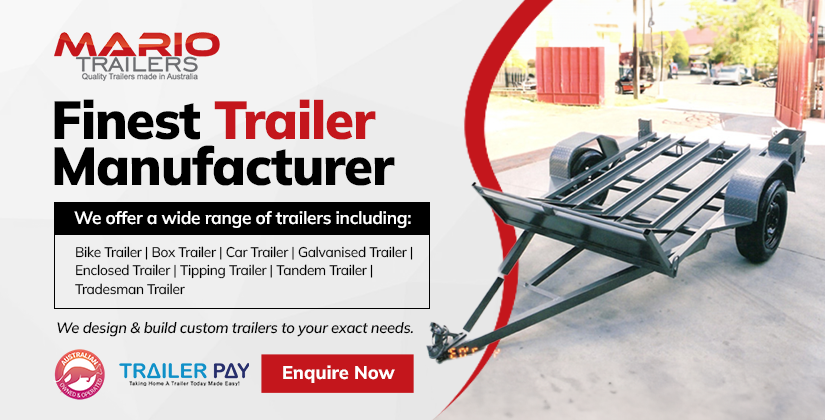
If you’re searching for a quality trailer in Sydney, ensure selecting the material of the trailer wisely. The material used in its construction is a crucial factor that affects performance, durability, and suitability for your specific needs. Here we’ll discuss the most common material options for the trailer and help you make an informed decision.
Understanding Trailer Materials
Trailers are typically built using steel or aluminium. Each material has its own unique characteristics that make it suitable for different applications.
Steel Trailers: The Dynamic Workhorses
Steel trailers are the traditional choice, known for their strength and durability. These trailers are constructed using high-strength steel alloys, often with additional treatments like galvanisation to enhance corrosion resistance. Steel trailers are ideal for heavy-duty applications and commercial use.
Benefits of Steel Trailers
- Durability: With proper maintenance, steel trailers can last for decades, even in harsh conditions.
- Exceptional Strength: Steel’s high tensile and compressive strength make it perfect for hauling heavy loads. It can withstand significant stress without deforming or breaking.
- Cost-Effective: Steel is generally less expensive than aluminium, making it a budget-friendly option for those needing a robust trailer.
Drawbacks for Steel Trailers
- Prone to Rust: Although galvanisation helps, steel can still rust over time, especially in coastal or high-humidity areas.
- Weight: Steel trailers are heavier, which can affect fuel efficiency and may require a more powerful towing vehicle.
- Lower Resale Value: Due to potential rust issues and higher weight, steel trailers often have lower resale values compared to their aluminium counterparts.
Aluminium Trailers: Lightweight Efficiency
Aluminium trailers offer a modern alternative to steel. They’re constructed using high-grade aluminium alloys, providing a balance of strength and lightweight. These trailers are popular for commercial and recreational use.
Benefits of Aluminium Trailers
- Corrosion Resistance: Aluminium naturally resists rust and corrosion, making it ideal for use in coastal areas or wet conditions.
- Fuel Efficiency: The lighter weight of aluminium trailers can lead to significant fuel savings over time, especially for long-distance hauling.
- Low Maintenance: Aluminium’s natural corrosion resistance means less time and money spent on maintenance compared to steel trailers.
Drawbacks of Aluminium Trailers
- Less Rigid: While still strong, aluminium is less rigid than steel, which can be a consideration for certain heavy-duty hauling requirements.
- Repair Challenges: Repairing a damaged aluminium trailer can be more complex and expensive than repairing a steel trailer.
- Higher Initial Cost: Aluminium trailers are generally more expensive upfront than steel trailers. However, this can be offset by lower maintenance costs and better fuel efficiency over time.
Factors to Consider When Choosing a Trailer Material
a) Intended Use
Think about your primary use for the trailer:
- For heavy commercial use, such as construction or industrial applications, steel might be the better choice.
- For recreational use or lighter commercial applications, aluminium could be more suitable.
b) Towing Vehicle Capacity
Consider your towing vehicle’s capabilities. If you have a smaller vehicle with limited towing capacity, an aluminium trailer might be a better fit due to its lighter weight.
c) Payload Capacity
- Consider the weight of the loads you’ll be carrying. Steel trailers generally have higher payload capacities, making them suitable for heavy-duty applications.
- However, aluminium trailers can still handle substantial loads while offering better fuel efficiency due to their lighter weight.
d) Environmental Conditions
If you’ll be using your trailer in coastal areas or places with high humidity, aluminium trailers are immune to corrosion, which is a plus. However, galvanised steel can also perform well in these conditions.
e) Budget
While steel trailers are usually less expensive initially, factor in long-term costs like maintenance and fuel efficiency. Aluminium trailers may cost more upfront but can offer savings over time.
f) Maintenance Requirements
Aluminium trailers generally require less maintenance due to their corrosion resistance. Steel trailers may need more frequent checks and treatments to prevent rust, especially if used in harsh conditions.
Custom Trailers Are Tailored to Your Needs
When looking for a trailer in Sydney, consider custom trailer options. Custom trailers allow you to choose the material and design that best suits your specific requirements. Whether you need specialised trailer parts or a unique configuration, a custom trailer can provide the perfect solution for your precise needs.
Helping You to Decide
Choosing between steel and aluminium material for your trailer depends on balancing these factors against your specific needs. Both materials have their strengths, and the right choice will depend on your unique situation.
For heavy-duty commercial use where maximum strength is crucial, a steel trailer might be the way to go. If you prioritise fuel efficiency, low maintenance, and corrosion resistance, an aluminium trailer could be the better choice.
The quality of construction is just as important as the material. So, look for reputable manufacturers who use high-quality trailer parts and adhere to strict manufacturing standards.
Expert Advice
If you’re still unsure about which trailer material is right for your needs, consider reaching out to experts in the field. Mario Trailers, a respected name in the trailer industry, can provide valuable insights and help you make the best decision. Our team of professionals can guide you through the benefits and drawbacks of different trailer materials and help you find or design a custom trailer in Sydney that perfectly matches your requirements.
The Bottom Line
Whether you choose steel or aluminium trailer, understanding the characteristics of each material is crucial for making an informed decision. Factor in your intended use, payload capacity, environmental conditions, and your budget to figure out the best-suited trailer for your needs.






